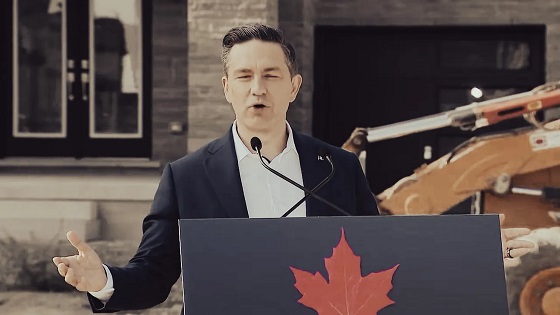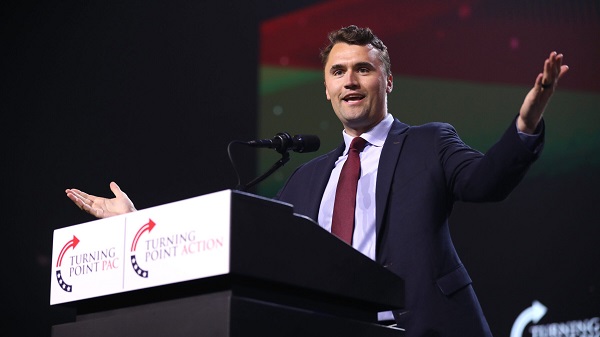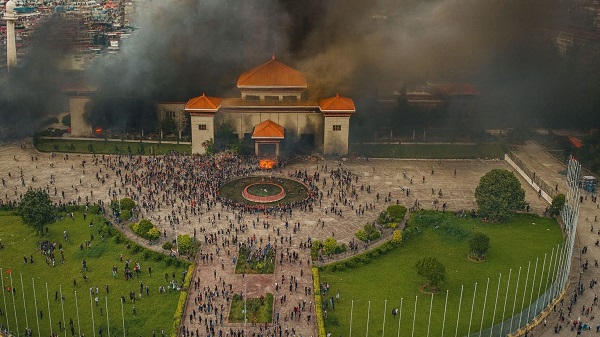Business
Preston Manning offers advice for Canada’s response to Trump Tariffs


From Josh Andrus of Project Confederation
Former leader of the Official Opposition and founding leader of the Reform Party of Canada, Preston Manning, recently reached out to me and asked me to share the following piece with Project Confederation supporters.
And with yesterday’s reprieve from tariffs, giving us at least 30 days to conduct some diplomacy, his thoughts on how that diplomacy should be conducted couldn’t be better timed.
Project Confederation has been saying the same thing for years – Canada needs to strengthen its position in North America by playing to its strengths, not doubling down on bad policies.
We need to focus on what actually matters instead of political grandstanding.
With Trump back in the White House, Ottawa is already stumbling into the same mistakes – empty tough talk, knee-jerk counter-tariffs, and no real strategy.
Manning lays out a better approach: one based on common sense, not political posturing.
Read his full piece below:
Responding to Trump: Will Foolishness or Common Sense Prevail?
By Preston Manning
With the inauguration of Donald Trump as the 47th president of the United States, how to appropriately respond to his administration’s initiatives — not the rumoured initiatives but the actual ones — becomes a highly relevant question for Canadians and our governments.
Unfortunately, a goodly portion of Canada’s political and media establishment got off on the wrong foot by responding foolishly rather than sensibly to Trump’s initial musings about Canada becoming a 51st state with Wayne Gretzky as governor. Instead of simply dismissing this as just another off-the-cuff joke for which Trump is notorious, much of the Canadian establishment took it seriously, giving it much more attention than it deserved.
And then there is the even more foolish response to Trump’s 25 per cent tariff threat by the stumbling Trudeau government — a government which is afraid to meet Parliament, whose leadership is seriously divided and, according to the polls, has the support of merely 20 per cent of the Canadian population.
Trudeau hastily assembled the premiers and announced the next week that he had taken a “Team Canada approach” which already shows signs of falling apart. The collective response of Canada to the expected Trump tariffs was then, predictably, declared to be a negative one involving the imposition of counter-tariffs.
Premier Doug Ford stated that counter-tariffs would be Ontario’s primary response, even before it was known what specific tariffs Trump was proposing. Premier David Eby of B.C. hysterically proclaimed that his province was preparing for “economic war” with the U.S. And Liberal leadership candidate Chrystia Freeland — the former finance minister who left the country with a $60-billion deficit and whom Trump most likely regards as the Canadian equivalent of Kamala Harris — trumpeted that she was the best person to lead Team Canada in its future relationship with the U.S.
But is not all of the above largely foolishness? Does not a common-sense approach to the tariff threat suggest going back to square 1 and analyzing it in the context in which it first was made?
Trump initially made tariff threats for the stated purpose of forcing Canada and Mexico to get serious about stopping the uncontrolled and illegal movement of unwanted migrants into the U.S.
Common sense then suggests that Canada’s initial response to Trump’s tariff threat should have been positive rather than negative, and that the Canadian response to the new Trump administration should have prioritized measures to stop the violation of U.S. borders by illegal migrants.
What needed to be said was this: “Here is what Canada’s federal and provincial governments are doing to stop this illegal activity and what we (Canada and the U.S.) can do cooperatively to secure North America from this threat.” No need now to threaten tariffs and retaliatory counter-tariffs, so let’s get on to some real business.
Trump being a businessman (of sorts) and a dealmaker, common sense further suggests bringing a positive response to an item which clearly is on Trump’s agenda and which also happens to be very much in Canada’s interest: energy security. This is a subject dear to Trump’s heart, referenced in his inaugural address, and a front on which Canada can lead from its strengths, not its fears.
There are few economic fronts on which Canada surpasses the U.S., but the truth is that, as the second-largest nation on Earth by land mass, Canada possesses some of the largest stocks of natural resources on the planet.
Thus surely common sense suggests that the most important component of Canada’s response to the Trump administration should be making North America more self-sufficient, especially with respect to energy.
Even our present prime minister has been obliged to belatedly reference this strength, but unfortunately, it is a subject on which his tattered Liberal government has zero credibility. For nine years it has most often treated the resource sectors — energy, agriculture, mining, forestry and the fisheries — as relics from the past and even environmental liabilities. It has opposed or delayed every major infrastructure project designed to increase our energy export potential — vetoing Northern Gateway in 2016, stalling Energy East until it was cancelled in 2017, making little effort to overcome roadblocks to pipeline construction in B.C. and imposing unconstitutional barriers to petroleum production through legislation such as Bill C-69, also known as the “No More Pipelines Act.”
No doubt some of Trump’s advisors will also remind him that in Canada, natural resources are first and foremost a provincial responsibility with private-sector entities playing a major role in their development.
Finally, of the various players on the political stage over the last month, who has most consistently articulated this common-sense response to the issues raised by the Trump administration? Certainly not our prime minister or any of the candidates to replace him. Rather, that voice of common sense has been Alberta Premier Danielle Smith. For that reason, she should be strongly supported and joined by those like-minded.
(Originally published in the National Post on January 30, 2025)
Manning’s message is clear: Canada’s leaders need less political theatre and more common sense when responding to major challenges.
Knee-jerk reactions and failed policies won’t cut it—we need a strategy that protects our economy, strengthens our provinces, and prioritizes real solutions over rhetoric.
That’s exactly what Project Confederation is fighting for.
But we can’t do it alone.
If you want to see a stronger, more self-sufficient Canada, consider making a donation today.
Every dollar helps us push for real change and hold Ottawa accountable.
Business
Upcoming federal budget likely to increase—not reduce—policy uncertainty

From the Fraser Institute
By Tegan Hill and Grady Munro
The government is opening the door to cronyism, favouritism and potentially outright corruption
In the midst of budget consultations, the Carney government hopes its upcoming fall budget will provide “certainty” to investors. While Canada desperately needs to attract more investment, the government’s plan thus far may actually make Canada less attractive to investors.
Canada faces serious economic challenges. In recent years, the economy (measured on an inflation-adjusted per-person basis) has grown at its slowest rate since the Great Depression. And living standards have hardly improved over the last decade.
At the heart of this economic stagnation is a collapse in business investment, which is necessary to equip Canadian workers with the tools and technology to produce more and provide higher quality goods and services. Indeed, from 2014 to 2022, inflation-adjusted business investment (excluding residential construction) per worker in Canada declined (on average) by 2.3 per cent annually. For perspective, business investment per worker increased (on average) by 2.8 per cent annually from 2000 to 2014.
While there are many factors that contribute to this decline, uncertainty around government policy and regulation is certainly one. For example, investors surveyed in both the mining and energy sectors consistently highlight policy and regulatory uncertainty as a key factor that deters investment. And investors indicate that uncertainty on regulations is higher in Canadian provinces than in U.S. states, which can lead to future declines in economic growth and employment. Given this, the Carney government is right to try and provide greater certainty for investors.
But the upcoming federal budget will likely do the exact opposite.
According to Liberal MPs involved in the budget consultation process, the budget will expand on themes laid out in the recently-passed Building Canada Act (a.k.a. Bill C-5), while also putting new rules into place that signal where the government wants investment to be focused.
This is the wrong approach. Bill C-5 is intended to help improve regulatory certainty by speeding up the approval process for projects that cabinet deems to be in the “national interest” while also allowing cabinet to override existing laws, regulations and guidelines to facilitate such projects. In other words, the legislation gives cabinet the power to pick winners and losers based on vague criteria and priorities rather than reducing the regulatory burden for all businesses.
Put simply, the government is opening the door to cronyism, favouritism and potentially outright corruption. This won’t improve certainty; it will instead introduce further ambiguity into the system and make Canada even less attractive to investment.
In addition to the regulatory side, the budget will likely deter investment by projecting massive deficits in the coming years and adding considerably to federal debt. In fact, based on the government’s election platform, the government planned to run deficits totalling $224.8 billion over the next four years—and that’s before the government pledged tens of billions more in additional defence spending.
A growing debt burden can deter investment in two ways. First, when governments run deficits they increase demand for borrowing by competing with the private sector for resources. This can raise interest rates for the government and private sector alike, which lowers the amount of private investment into the economy. Second, a rising debt burden raises the risk that governments will need to increase taxes in the future to pay off debt or finance their growing interest payments. The threat of higher taxes, which would reduce returns on investment, can deter businesses from investing in Canada today.
Much is riding on the Carney government’s upcoming budget, which will set the tone for federal policy over the coming years. To attract greater investment and help address Canada’s economic challenges, the government should provide greater certainty for businesses. That means reining in spending, massive deficits and reducing the regulatory burden for all businesses—not more of the same.
Business
Poilievre: “Carney More Irresponsible Than Trudeau” as Housing, Jobs, and Energy Failures Mount

50,000 lost manufacturing jobs, 86,000 more unemployed, soaring housing costs, and blocking every LNG project while vowing to end the TFW program
Pierre Poilievre opened his press conference with a direct attack on Mark Carney and the Liberal record on housing, framing the crisis as the product of government mismanagement rather than market forces.
He began by pointing to Conservative MP Scott Aitchison, a former mayor, as an example of what can be done when local leaders “cut the taxes and the development charges and the wait times so that building can happen.” Then came the pivot: “What a contrast with Justin Trudeau — excuse me, with Mark Carney,” he said, before slamming Carney’s choice of Gregor Robertson as housing minister. Robertson, he reminded the crowd, presided over a 149% increase in Vancouver housing costs and more than doubled homebuilding taxes. Carney, Poilievre said, rewarded that record by handing him the national housing file.
The setting itself — Deco Homes, a family-run builder founded by Italian immigrants — was chosen deliberately. Poilievre praised the Gasper family for their role in building Canada’s homes and businesses, but then asked whether such families could do the same today. His answer was no. “After a decade of Liberal taxes, Liberal spending, out-of-control Liberal immigration, reckless crime policies… the Canadian promise is really broken.”
From there, he broadened the attack. He spoke of an entire generation priced out of homeownership, of immigration growing “three times faster than housing and jobs,” of crime rising, and of what he called “the worst economy in the G7.” And then he turned squarely on Carney: “Mr. Carney is actually more irresponsible than even Justin Trudeau was,” citing an 8% increase in government spending, 37% more for consultants, and 62 billion dollars in lost investment — the largest outflow in Canadian history, according to the National Bank.
The message was simple: Liberals talk, Conservatives build. Poilievre painted Carney as a man of speeches and promises, not results. “The mistake the media is making is they’re judging him by his words rather than his deeds,” he said.
It was an opening statement designed less to introduce policy — those details came later — and more to frame the battle. For Poilievre, Carney isn’t just Trudeau’s replacement. He’s Trudeau’s sequel, and in some ways worse.
During the Q and A portion of the presser; Pierre Poilievre was pressed on immigration today, and what he said was blunt. Canada, he argued, once had the “envy of the world” system: immigrants came in at numbers the country could absorb. There were jobs, housing, health care. Everyone integrated. Ten years later? He says the Liberals have destroyed that.
The facts he used were stark. According to Poilievre, Canada is bringing in people three times faster than homes and jobs are being created. He accused the government of allowing “massive abuses” of the international student program, the Temporary Foreign Worker program, and asylum claims, with what he called “rampant fraud” right under Ottawa’s nose.
He tied this directly to the economy: youth unemployment, he said, is the worst in three decades. At the same time, employers are importing more temporary foreign workers than ever, this year at a record high and using them for cheap labor under poor conditions. His line: “While our young people can’t find jobs, employers are able to exploit temporary foreign workers by giving them lower wages and terrible working conditions.”
But here’s the part that stands out politically. Poilievre said, “Immigrants are not to blame.” He put the responsibility squarely on Liberal governments, calling their immigration numbers “reckless and irresponsible.”
His fix? End the Temporary Foreign Worker program. Cut immigration levels back to “the right numbers and the right people” to fill jobs Canadians can’t do. Tighten border standards to keep criminals out. And, in his words, “always and everywhere put Canada first.”
Pierre Poilievre didn’t hold back when asked about Mark Carney’s record. His words: “Mr. Carney is actually more irresponsible than even Justin Trudeau was.” That’s not a throwaway line, he backed it with numbers.
According to Poilievre, Carney inherited what he called a “morbidly obese government” from Trudeau and made it worse: 8% bigger overall, 37% more for consultants, and 6% more bureaucracy. He says Carney’s deficit is set to be even larger than Trudeau’s.
Then the jobs number: 86,000 more unemployed people under Carney than under Trudeau. That, Poilievre argued, is the real measure, not the polished speeches Carney gives. His line: “The mistake the media is making is they’re judging him by his words rather than his deeds.”
He also went after Carney for what hasn’t happened: “He has not approved a single major national project.” Meanwhile, Poilievre says food price inflation is even worse today, crime policy hasn’t changed the same “catch and release” approach and every big promise Carney made has already been broken.
Pierre Poilievre was asked about Ukraine, and his answer wasn’t about speeches or handshakes in Brussels. It was about pipelines.
“The best way to put Canada first while helping Ukraine is to sell our oil and gas in Europe.” His argument: Vladimir Putin bankrolls his war because Europe still buys his fuel. Poilievre said if Canada had built the Energy East pipeline, we’d be shipping a million barrels of oil a day to Europe right now.
He went further: approve LNG plants immediately, liquefy tens of billions of dollars of Canadian gas, and ship it overseas to “fully displace” Russian sales. His line: “Instead of the money going to Putin’s war machine, it will go to the trades workers in this country.”
And then the indictment of the Liberals: “Mark Carney and the Liberals have blocked every single LNG project that has been put before them. As a result, we only have one plant and it was approved by Stephen Harper.”
So the contrast is stark. Carney talks about climate virtue. Poilievre says: build pipelines, sell fuel, kill Putin’s war economy, and pay Canadian workers. His closer: “That is how you put Canada first.”
Final Thoughts
So let’s just be honest. Under Mark Carney’s leadership, the numbers aren’t just bad they’re devastating. In a matter of months, Canada has lost 50,000 manufacturing jobs. These are not low-skill jobs; they are the backbone of the economy, the kind of work that built the middle class in this country. Add to that another 86,000 unemployed overall compared to when he took office. This is what Carney calls stability.
Now, if you’re a Temporary Foreign Worker, life looks pretty good. Ottawa has built an entire system around you cheap wages, little recourse, and companies happy to import you as disposable labor. If you’re a Carney insider, it looks even better. The government is 8% bigger than when Trudeau left, consultants are raking in 37% more, the bureaucracy is swelling. It’s one of the greatest insider rackets in modern Canadian politics.
But if you’re part of Canada’s middle class, if you’re a young person trying to buy a home, if you’re a worker trying to hold onto a job in a plant, a mill, or a construction site you are being hollowed out. You’re watching your wages stagnate, your housing costs explode, your jobs disappear overseas or into government-mandated “green transitions.” And when you ask for answers, what do you get? You get Patty Hajdu telling you not to be afraid of robots. You get Mark Carney telling you his deficits are “investments.” You get speeches about “climate virtue” and “AI literacy” while your livelihood collapses.
That’s the contrast Poilievre is trying to draw. On immigration, he says: let’s end the Temporary Foreign Worker scam, bring people in at a pace we can actually house and employ, and put Canadian workers first. On energy, he says: build the pipelines, approve the LNG projects, and stop funding Putin’s war by leaving Europe dependent on Russian fuel. On the economy, he says: stop measuring success by the size of government or the smoothness of a prime minister’s speeches, and start measuring it by the number of Canadians who can work, buy homes, and raise families in their own country.
So the choice is simple. Carney offers more of the same consultants, insiders, deficits, slogans, and the slow managed decline of a once-prosperous nation. Poilievre is offering something completely different: a chance to reverse the hollowing out of the middle class and to put Canadian jobs, Canadian energy, and Canadian sovereignty first.
If you’re an insider, Carney’s Canada works just fine. If you’re a middle-class Canadian, it’s a disaster. And that, in the end, is the dividing line in this country.
Subscribe to The Opposition with Dan Knight .
For the full experience, upgrade your subscription.
-

 International2 days ago
International2 days agoBreaking: ‘Catch This Fascist’: Radicalized Utah Suspect Arrested in Charlie Kirk Assassination, Officials Say
-

 Crime1 day ago
Crime1 day agoFormer NYPD Inspector Shares What Family Of Alleged Charlie Kirk Assassin Feared Before Turning Him In
-

 International2 days ago
International2 days agoCharlie Kirk Shooting Suspect Revealed: Here’s What His Ammunition Said
-

 Crime2 days ago
Crime2 days agoArrest made in Charlie Kirk assassination
-

 Health2 days ago
Health2 days agoCanadians left with no choice but euthanasia when care is denied
-

 Business2 days ago
Business2 days agoUpcoming federal budget likely to increase—not reduce—policy uncertainty
-

 Crime2 days ago
Crime2 days ago‘Radicalized’ shooter dead, two injured in wake of school shooting
-

 J.D. Tuccille2 days ago
J.D. Tuccille2 days agoAfter Charlie Kirk’s Murder, Politicians Can Back Away From the Brink, or Make Matters Worse









